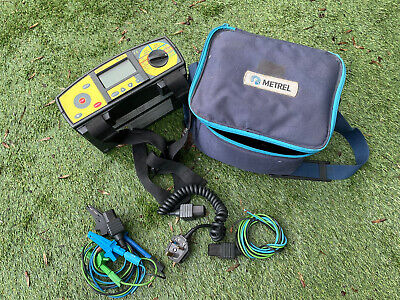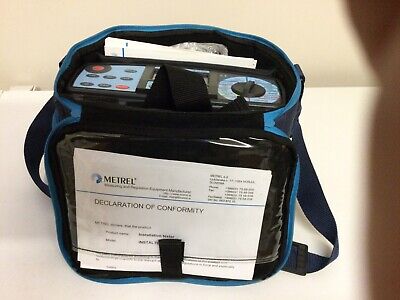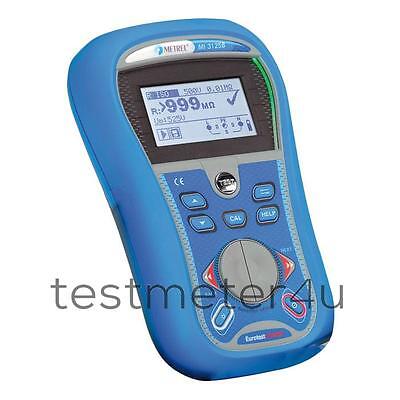Hi,
I've decided a decent test meter would be useful for me but given that I wouldn't be using it more than a couple of times a year I don't really want to buy a new one for £400+, so had a look on ebay and there's quite a few for around £100 which seems much more sensible for the amount of use I'll need. I have a few in mind which I'll post in the links below, if anyone would be kind enough to have a look at them and give me some advice it would be greatly appreciated!



Those are all metrel ones, if they don't look decent I'm happy to wait until something better comes up.
Also none of them have an up to date calibration certificate so that would mean I'd need to get it calibrated, what sort of cost would I be looking at? I'm based in Newcastle-upon-Tyne so if anyone knows good calibration companies around here that would would be great!
I should point out I'm only planning on using it in my own home, and just want to be able to test any work I do (all fairly minor stuff that wouldn't require notification or anything). Also I'm just interested and want to learn about proper testing. (Can you tell I'm bored in lockdown lol).
Thanks for any replies!
I've decided a decent test meter would be useful for me but given that I wouldn't be using it more than a couple of times a year I don't really want to buy a new one for £400+, so had a look on ebay and there's quite a few for around £100 which seems much more sensible for the amount of use I'll need. I have a few in mind which I'll post in the links below, if anyone would be kind enough to have a look at them and give me some advice it would be greatly appreciated!

metrel multifunction tester EasiPLUS Mi3000 | eBay
<p>metrel multifunction tester EasiPLUS Mi3000. Condition is "Used". </p><br><p>It’s had a damaged screen but doesn’t effect it.</p><p>Dispatched with Royal Mail 1st Class.</p>
www.ebay.co.uk

Metrel Easitest Multifunction Tester | eBay
<p>Metrel Easitest Multifunction Tester. Condition is "Used". Dispatched with Royal Mail 1st Class.</p><p>Sorry no returns with this item.</p>
www.ebay.co.uk

Metrel Multifunction Tester 61557 | eBay
<p>Metrel Multifunction Tester 61557. Condition is "Used". if you are looking at this you obviously know what you are looking at .my brother in law was a good time served electrical engineer who loved his equipment and took very good care of it.sadly he died suddenly and my wife has been dealing...
www.ebay.co.uk
Those are all metrel ones, if they don't look decent I'm happy to wait until something better comes up.
Also none of them have an up to date calibration certificate so that would mean I'd need to get it calibrated, what sort of cost would I be looking at? I'm based in Newcastle-upon-Tyne so if anyone knows good calibration companies around here that would would be great!
I should point out I'm only planning on using it in my own home, and just want to be able to test any work I do (all fairly minor stuff that wouldn't require notification or anything). Also I'm just interested and want to learn about proper testing. (Can you tell I'm bored in lockdown lol).
Thanks for any replies!










